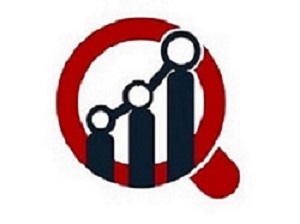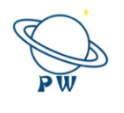Automotive Li Ion Battery Market Projected to Hit USD 398.8 Billion at a 18.9% CAGR by 2032 – Report by Market Research Future (MRFR)
Research Reports
Aug 28, 2024

Market Overview
The Automotive Li Ion Battery market is a rapidly evolving sector within the automotive industry, driven by the increasing adoption of electric vehicles (EVs) and hybrid vehicles. Li-Ion batteries are favored in the automotive industry due to their high energy density, long life cycle, and relatively lightweight design compared to other battery technologies. They are integral to the performance of electric and hybrid vehicles, providing the necessary power for extended driving ranges and efficient operation.
As the global automotive industry shifts towards electrification, the demand for Li-Ion batteries is surging. This Automotive Li Ion Battery market encompasses not only the production and supply of these batteries but also the research and development efforts aimed at improving their performance, safety, and cost-efficiency.
Request Free Sample Report: https://www.marketresearchfuture.com/sample_request/23740
Market Segmentation Insights :
Battery Type Outlook
Nickel-Cobalt-Aluminum Oxide (NCA)
Nickel-Cobalt-Manganese Oxide (NCM)
Lithium Iron Phosphate (LFP)
Lithium Nickel Manganese Cobalt Oxide (NMC)
Application Outlook
Electric Vehicles
Hybrid Electric Vehicles
Plug-in Hybrid Electric Vehicles
Power Output Outlook
Low Power (100 kWh)
Medium Power (100-500 kWh)
High Power (>500 kWh)
Factor Outlook
Cylindrical
Prismatic
Pouch
Regional Outlook
North America
Europe
South America
Asia Pacific
Middle East and Africa
Market Dynamics
- Technological Advancements: Technological advancements play a crucial role in shaping the automotive Li-Ion battery market. Innovations in battery chemistry, cell design, and management systems are driving improvements in energy density, charging speed, and overall battery performance. For instance, advancements in solid-state batteries and improvements in lithium iron phosphate (LFP) chemistry are enhancing the safety and efficiency of Li-Ion batteries, making them more appealing to automakers and consumers.
- Regulatory Pressures and Environmental Policies: Stringent environmental regulations and policies aimed at reducing greenhouse gas emissions are significant drivers of the Li-Ion battery market. Governments worldwide are implementing stricter emission standards and offering incentives for the adoption of electric vehicles. For example, various countries have set ambitious targets for reducing carbon emissions and transitioning to cleaner energy sources, which is boosting the demand for EVs and, consequently, for Li-Ion batteries.
- Economic Factors and Market Competition: Economic factors and competitive pressures are also influencing the automotive Li-Ion battery market. The scale of production and advancements in manufacturing technologies are driving down the cost of Li-Ion batteries. As battery prices decrease, the overall cost of EVs becomes more competitive with internal combustion engine vehicles, accelerating the adoption of electric vehicles. Market competition among battery manufacturers is fostering innovation and cost reductions, benefiting consumers and accelerating market growth.
- Consumer Preferences and Adoption Rates: Changing consumer preferences are another important dynamic. Increasing awareness of environmental issues and the desire for lower operating costs are driving consumer interest in electric vehicles. As EVs become more mainstream and affordable, the demand for high-performance Li-Ion batteries is expected to grow. Automakers are investing in battery technology to meet consumer expectations for longer driving ranges, faster charging times, and improved overall performance.
- Infrastructure Development: The development of charging infrastructure is crucial for the widespread adoption of electric vehicles and the growth of the Li-Ion battery market. Investments in fast-charging networks and improvements in battery recycling and second-life applications are enhancing the feasibility of electric vehicle ownership. As charging infrastructure becomes more accessible and reliable, consumer confidence in EVs and Li-Ion batteries will increase, further driving market growth.
Drivers
- Electrification of Transportation: The electrification of transportation is the primary driver of the Li-Ion battery market. As governments and consumers increasingly embrace electric vehicles as a solution to reduce emissions and dependence on fossil fuels, the demand for high-capacity, efficient, and durable batteries continues to rise. Electric vehicles, including battery electric vehicles (BEVs) and plug-in hybrid electric vehicles (PHEVs), rely heavily on advanced Li-Ion batteries to provide the power and range required for everyday use.
- Advancements in Battery Technology: Continuous advancements in battery technology are driving the market forward. Innovations such as higher energy density cells, faster charging capabilities, and improved thermal management are enhancing the performance and appeal of Li-Ion batteries. Research into alternative battery chemistries and solid-state batteries is also contributing to the development of more efficient and safer energy storage solutions.
- Government Incentives and Regulations: Government incentives, subsidies, and regulations are major drivers for the adoption of Li-Ion batteries in the automotive sector. Policies that support the development and purchase of electric vehicles, such as tax credits, rebates, and zero-emission vehicle mandates, are fueling demand for Li-Ion batteries. Additionally, stricter emissions regulations compel automakers to invest in electric vehicle technology, further boosting the Li-Ion battery market.
- Cost Reduction and Economies of Scale: Cost reduction is a significant driver in making electric vehicles more accessible to a broader audience. As battery manufacturers achieve economies of scale and improve production efficiencies, the cost of Li-Ion batteries decreases. Lower battery costs contribute to reduced vehicle prices, making electric vehicles more competitive with traditional internal combustion engine vehicles and driving greater market adoption.
- Rising Environmental Awareness: Growing environmental awareness among consumers and businesses is pushing for cleaner and more sustainable transportation solutions. The shift towards electric vehicles, supported by the benefits of Li-Ion batteries in reducing emissions and improving fuel efficiency, aligns with global efforts to combat climate change and reduce the carbon footprint of transportation.
Discover More Research Reports on Automotive by Market Research Future:
Automotive Lighting Actuators Market
Automotive Paints and Coating Market
Automotive Parking Assist System Pas Market
Automotive Part Cleaner Degreasers Market
Automotive Parts Zinc Die Casting Market
Automotive Passenger Vehicle Sensor Market
Automotive Audio Amplifier Market
Alternative Fuel and Hybrid Vehicle Market
Mobile Car Wash Service Market
Passenger Ferries Market
Pickup Truck Market
About US
Market Research Future (MRFR) is a global market research company that takes pride in its services, offering a complete and accurate analysis with regard to diverse markets and consumers worldwide. Market Research Future has the distinguished objective of providing the optimal quality research and granular research to clients. Our market research studies by products, services, technologies, applications, end users, and market players for global, regional, and country level market segments, enable our clients to see more, know more, and do more, which help answer your most important questions.
Contact Information:
Contact US
Market Research Future
99 Hudson Street,5Th Floor
New York, New York 10013
United States of America
Website: https://www.marketresearchfuture.com
Sales: +1 (855) 661-4441 +44 1720 412 167
Mail : info@marketresearchfuture.com
Tags:
Research Newswire, English


